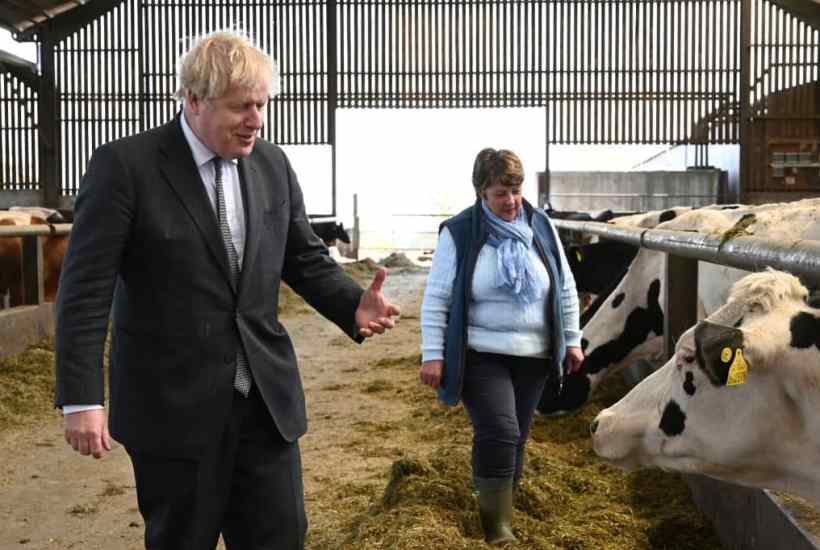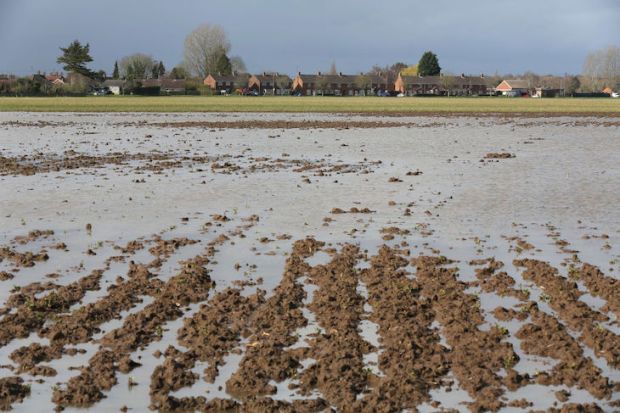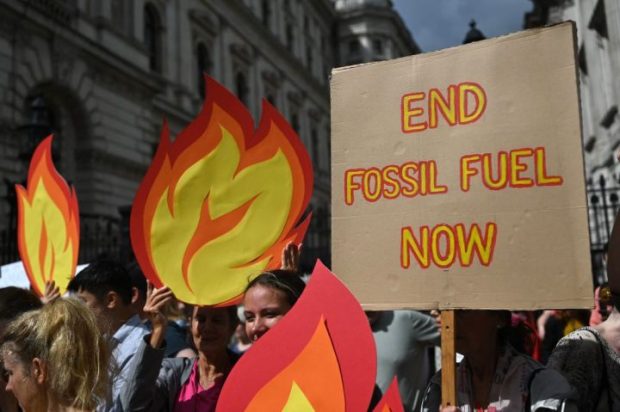Does Boris Johnson have the faintest idea what he and his government are trying to achieve anymore? I ask because of the Prime Minister’s ‘grow for Britain’ strategy which has been leaked to the Daily Telegraph. The strategy, due to be launched on Monday, apparently demands that farmers grow more fruit and vegetables to make us less reliant on imported food, especially in the face of the Ukraine crisis – which has created the headache of how to continue production and exports from one of Europe’s most agricultural nations.
To this end, the grow for Britain strategy will, it is said, commit to ‘changes to planning rules to make it easier to convert land into farms’. There may be a few marginal areas in national parks and sites of special scientific interest which farmers would like to plough up but are prevented from doing so by environmental, rather than planning, rules. But I wasn’t aware of any great tracts of land in Britain that farmers are trying to turn into farmland but are thwarted by planning rules. It is rather more common for land to pass in the other direction, with landowners trying to turn farmland into housing estates because of the huge profits on offer.
But leave that aside, why is the government suddenly launching an agricultural policy which pulls in exactly the opposite direction as the one it announced just five months ago? Defra’s Landscape Recovery Programme, unveiled in January, seeks to take 300,000 hectares of farmland (an area the size of Shropshire) out of production and ‘rewild’ it in the name of boosting biodiversity and trying to mop up carbon emissions.
The government has also announced that it wants 7,000 hectares of new woodland to be planted per year by the end of this parliament – although it is not clear whether this is in addition to the 300,000 hectares of land to be rewilded or included within it.
It also ought to be noted that the government’s net zero policy is also taking large tracts of farmland out of production in the name of turning them into solar farms. Current proposals for solar energy could take a further 62,000 hectares out of production. While this land could still be used for grazing, much of the farmland under threat is prime arable land.
At the time of the Landscape Recovery Programme, environmental secretary George Eustice dismissed warnings from the NFU and others that the rewilding scheme would make Britain more dependent on food imports. Britain’s self-sufficiency in food has already plunged from over 75 per cent in the early 1980s to 60 per cent now.
It is perfectly possible, of course, that the Prime Minister and his colleagues have changed their minds in reaction to the Ukraine war and the soaring price of food due to that and other reasons. Maybe they do now accept that their rewilding plans were ill-conceived. But if so, then they will have to withdraw them. What the government cannot possibly do is to sustain two contradictory policies at the same time: one encouraging farmers to rewild their land and another trying to persuade farmers to turn wild land back into farmland. So, which is it to be: rewilding and green energy – or food security?
Got something to add? Join the discussion and comment below.
Get 10 issues for just $10
Subscribe to The Spectator Australia today for the next 10 magazine issues, plus full online access, for just $10.





















Comments
Don't miss out
Join the conversation with other Spectator Australia readers. Subscribe to leave a comment.
SUBSCRIBEAlready a subscriber? Log in